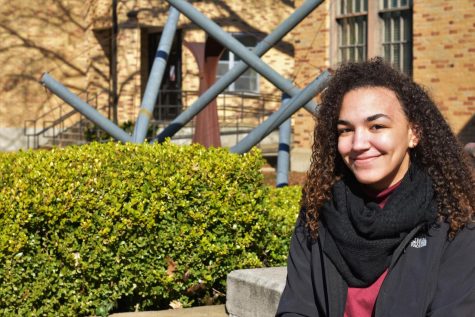No offense, but… Maybe You’re Missing What These Sororities are Looking For
Delta State University is encountering inconsistencies between its overall racial demographics and those within its sororities.
According to Mississippi.edu, in the fall of 2016, approximately 41% of students enrolled at Delta State were people of color. That same year, sorority Tri Delta had roughly 75 members, only five of which were women of color—6.7% representation.
Delta State hosts six sororities—three historically white (Delta Delta Delta (Tri Delta), Phi Mu and Kappa Delta) and three historically black (Alpha Kappa Alpha (AKA), Delta Sigma Theta and Zeta Phi Beta).
Only three of the six have official housing on campus—the three historically white ones, who all have their alumni from throughout the years proudly displayed in the halls, also displaying the sororities’ incongruous lack of color.
Information for that year was unavailable for Kappa Delta and Phi Mu. However, for the 2015-2016 school year, Phi Mu had around 90 members while Kappa Delta boasted 92, with women of color holding five spots in Kappa Delta. Based on the portraits, there were no women of color in Phi Mu.
This year, Tri Delta has 77 members, four of which are women of color (two biracial women, two Hispanic women). In an interview with The Delta Statement, Brittany Foust, the chapter’s president, said the Panhellenic Council, the organization over the sorority, sent out invitations to every incoming female at Delta State; however, several women we spoke to, even ones that were admitted to the school early, never received anything.
When asked if discussing color and race made her uncomfortable, Foust replied, “We’ve had a girl that we extended [an invitation] to, and she was looked down upon because she joined a white sorority. So, it’s not that we don’t want women of color because we do. We want any woman that’s interested and will add to our chapter.”
We also spoke with AKA Chapter President Porsche Chambers to gather information about demographics within her sorority. In a chapter of 27, there are no white women.
Chambers says efforts have been made for all the sororities to “come closer together” and “blend,” but overall, it’s just not happening. She doesn’t think it’s a “racist thing,” though. As she put it, “We all just kind of do our own thing.”
Both Chambers and Foust would like for any woman interested in their sororities to come get more information. Tri Delta will start accepting new recruits in the spring, AKA starting next fall.
Phi Mu was unavailable for comment, and Kappa Delta declined the opportunity.

Madison Kalia, more commonly known as “MK,” is a transfer to Delta State University from Hinds Community College. MK served The Delta Statement last...



